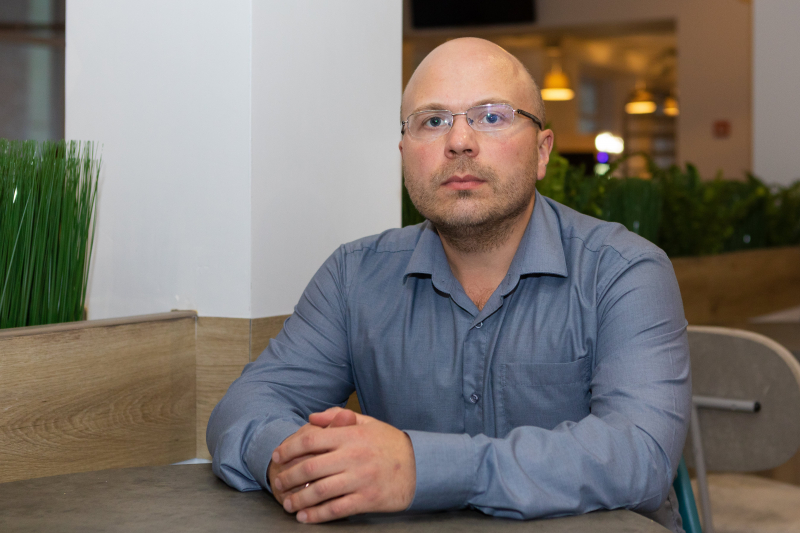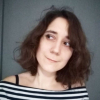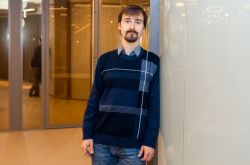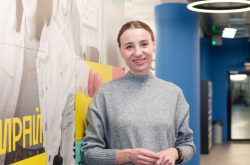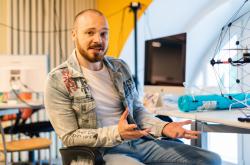You’ve been part of ITMO.Family for more than 13 years now. Could you tell us more about how you started out on your career?
I studied physics and optical communications at ITMO and had a wide range of subjects, all math-related. Everyone believed that you couldn’t be a big-deal development engineer if you didn’t have fundamental knowledge. Nevertheless, when I was in my fourth year, I figured that fiber-optic communication wasn’t something I’d like to pursue further in the future. I dreamed about building my academic career and teaching students.
Back then, I delivered several seminars for AutoCAD where I spoke about how to use this system to visualize different objects. In 2009, I got into a Master’s program. At first, I worked as an assistant and helped teachers with their classes and then started to teach myself.
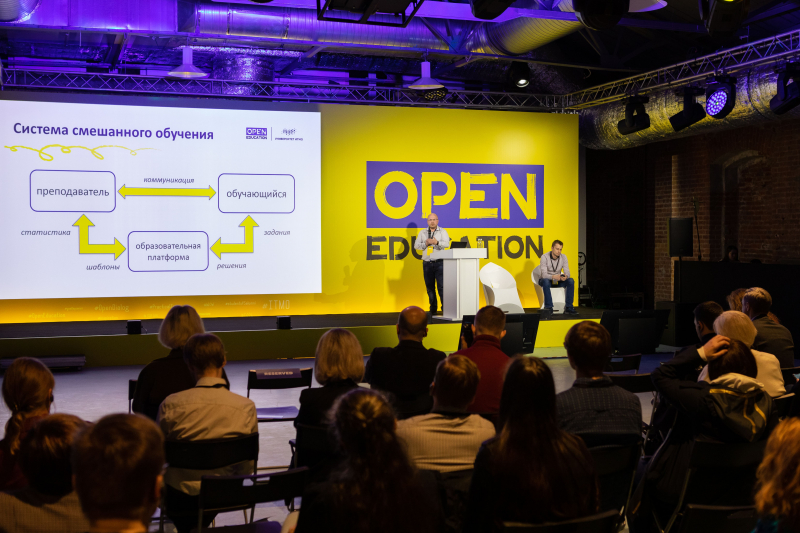
The workshop by Alexander Trifanov and Maxim Scriabin at the Open Education Conference. Photo courtesy of Dmitry Grigoriev, ITMO.NEWS
What were your Master’s and PhD theses about?
My Master’s thesis was all about quantum computing. During the research, I was engaged in modeling components of a quantum optical network to perform quantum computations and studied the effects of the interaction between an electromagnetic field and an atom, which I could then apply in my work.
This paper is not only a study of fundamental physical effects but also mathematical modeling of extremely interesting quantum processes. I continued the research in my PhD thesis. Just like my Master’s, it was also devoted to quantum components but mostly in the context of quantum measurements.
What subjects do you teach?
I teach linear algebra, which lies at the core of various other fields. That’s one of the fundamental disciplines taught to future engineers, programmers, physicists, biologists, and chemists.
During classes, I often speak about methods that I found useful in my research and give examples from other fields, too. For instance, linear algebra can be of use not only for modeling quantum systems but also for writing different programs.
Apart from quantum physics, I’m also interested in theoretical computer science. The thing is, mathematical and programming concepts have much in common. By theoretical computer science, I mean studying programming methodology and paradigms from an algebraic point of view. It helps me to connect with my students, be current, and explore other perspectives.
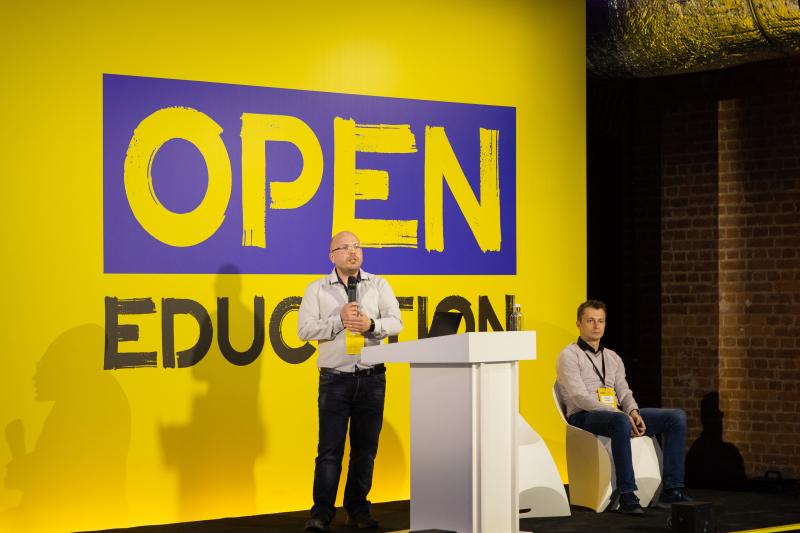
The workshop by Alexander Trifanov and Maxim Scriabin at the Open Education Conference. Photo courtesy of Dmitry Grigoriev, ITMO.NEWS
You work with students from all majors. How do you find the right approach?
I pay special attention to students’ interests. If I have a class with future physicists, I elaborate a bit more on the history of mathematics and highlight the close link between mathematics and physics. The same is true for other specializations. I focus on what might be interesting for students of certain majors.
Yet it surely requires expertise in a range of fields. Say, my students are interested in programming, then I should be ready to have a talk on C++ or Python or if they’re more into optics, I try to look for more related tasks like lab projects that have the best of both fields.
However, once in a while I do the opposite thing. I can ask programmers to solve a physical problem and vice versa. Surely, I offer rather simple tasks meant to train their algebra skills. Thanks to this, they learn that this or that methods can be applied differently. My task is to lay the groundwork for its systematic study.
Do you have any hobbies?
I believe that your work should be your hobby, too. It’s crucial for teachers to have a broad outlook. That’s why I always learn new things to make my classes more exciting for my students.
This summer, I went through the writings of ancient Greek mathematicians. I love history, and it helps me a lot. Sometimes, I ask my students some tricky questions, like, when were vectors invented? And they gape when I say it was just 100 years ago. I might mention quadratic equations, and they will be sure that they appeared 200 years ago but it was more than 2,000 years ago. Such things are quite unobvious. Students like this format.
I also like to go for a walk in a park or spend time with my children. I have two daughters and a son. My daughters are in the fifth and second grades, and my son is about to go to kindergarten soon. My eldest likes mathematics, too. Once I brought her a book and after she read it, she asked me like a million questions about mathematics. She wants to study at ITMO in the future.
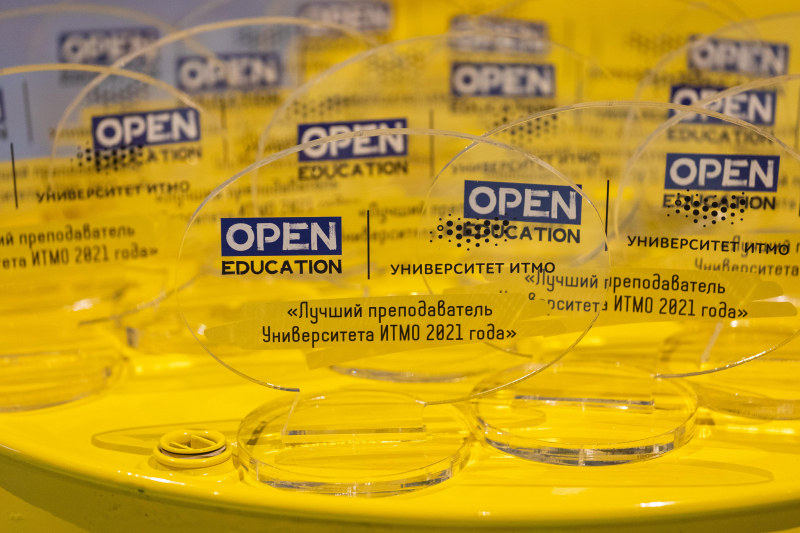
The Open Education Conference. Photo courtesy of Dmitry Grigoriev, ITMO.NEWS
Why did you decide to apply for EduStars?
I went to receive feedback from my colleagues, and I did. Some people said that I should interact with the audience more. I agree. I’m working on it now.
And what do your students say?
Just like anyone else, students love attention. If they are frowning and clearly have no idea what I’m talking about, I try to help them understand the topic or involve their fellow students, too.
I appreciate feedback and never look for shortcuts. When I was about to defend my thesis, I had to choose whether I’d like to do it at ITMO or the State St. Petersburg University. I went for the latter because I wanted to learn what other people think about my work. Constructive criticism motivates me and helps me to grow as a specialist.
How did you react when you learned you’d won the contest?
I didn’t know up to the last moment. When I was asked to go up on the stage, I was surprised. I couldn’t believe I won the contest. Yet, of course, I was happy that my work was so highly regarded. It means I’m on the right path.
